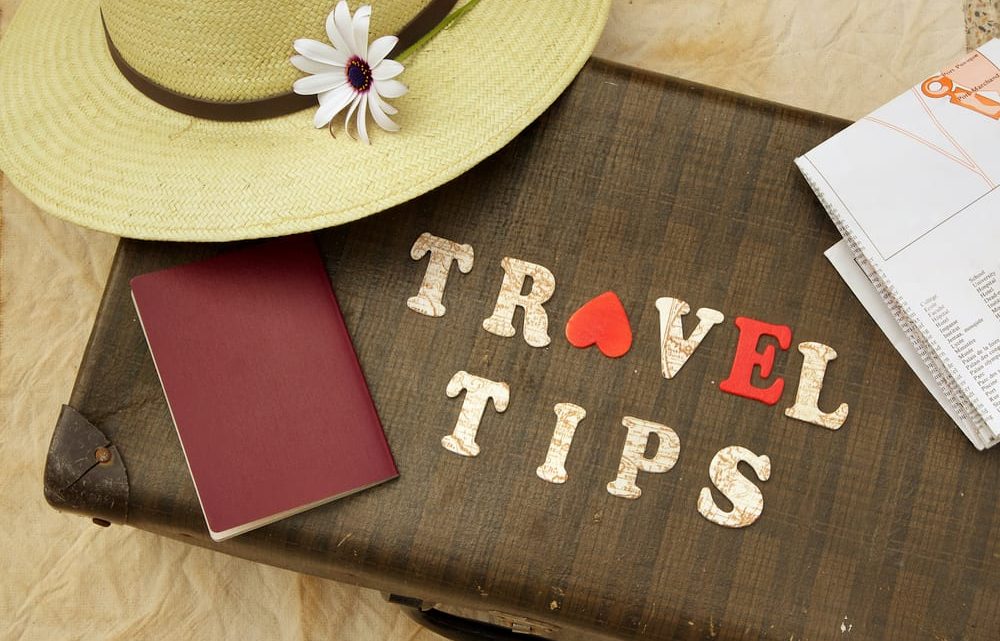
Essential Tips for a Successful International Travel Experience
Embarking on an adventure beyond your homeland can be a thrilling yet daunting experience. As you prepare for this experience, a solid understanding of key considerations can significantly enhance your comfort and enjoyment. Successful expeditions demand not only enthusiasm but also thoughtful planning and awareness of surroundings.
From navigating local customs to ensuring safety and understanding transportation options, there are various factors that contribute to the overall success of your expedition. By equipping yourself with informed strategies, you can effortlessly maneuver through challenges that may arise. This will ultimately lead to unforgettable memories and enriching moments as you immerse yourself in new cultures.
To make your experience even more enjoyable, it’s vital to stay prepared and informed. Whether you’re a seasoned explorer or taking your first steps into new territories, the following guidance will serve as your compass, helping you to traverse your path with confidence. Let’s delve into these valuable considerations that will help pave the way for your upcoming escapade.
Key Preparations Before Departure
Getting ready for a voyage involves several crucial steps that can greatly enhance the overall experience. A well-organized approach not only minimizes stress but also ensures that all necessary arrangements are addressed ahead of time.
First and foremost, confirm that your identification and any required documentation are valid and in order. This may include passports, visas, and any other essential permits needed for entry to your destination. It is wise to make photocopies or digital backups of these documents in case of loss or theft.
Next, review and sort out your itinerary, including flight details, accommodations, and scheduled activities. Having a clear plan will help prevent confusion and allow for a more enjoyable stay. Additionally, consider purchasing travel insurance to protect yourself from unforeseen circumstances.
Lastly, ensure that you have the necessary funds and payment methods arranged for your expenses abroad. Research the local currency, exchange rates, and acceptable payment options to avoid any financial hassles. Preparing these elements beforehand can make a significant difference in having a positive experience.
Packing Strategies for Travelers
Efficient organization is key when preparing for an adventure away from home. Mastering the art of packing ensures that you have everything you need without unnecessary bulk. Consider these clever methods to streamline your belongings and enhance your experience.
-
Make a checklist: Outline all necessary items to ensure nothing is forgotten. This can help you visualize your needs and reduce the chance of impulse packing.
-
Use packing cubes: These handy organizers can help you separate clothing by type or usage, making it easy to find what you need without rummaging through your entire suitcase.
-
Roll your clothes: Rolling instead of folding can save space and minimize wrinkles, maximizing the efficiency of your luggage.
Consider the following strategies to optimize the packing process:
-
Select versatile clothing: Choose items that can be mixed and matched to create various outfits, thus reducing the total number of pieces needed.
-
Limit shoes: Footwear can take up valuable space; try to stick to two pairs: one casual and one formal.
-
Utilize empty spaces: Fill shoes with smaller items like socks or chargers to make effective use of every available area.
Lastly, remember to pack a carry-on with essentials like toiletries and important documents. This way, you’ll be prepared for any situation, ensuring comfort and convenience throughout your escapade.
Navigating Airport Procedures Efficiently
Understanding the various steps you’ll encounter at an airport can significantly enhance your experience, allowing you to focus on the excitement of what lies ahead. Preparing in advance is crucial, as it can help in alleviating unnecessary stress. From check-in to security checks, each stage requires attention, yet clarity in these procedures can lead to a seamless process.
Pre-Departure Preparations
Before heading to the airport, gather all necessary documents including your identification, boarding pass, and any additional paperwork required by your destination. It’s advised to arrive early, granting you ample time to manage unforeseen delays. Consider packing smartly: keeping essential items and valuables easily accessible will aid in expediting the screening process.
Effective Security Screening
At the security checkpoint, follow instructions from personnel carefully. Remove any items that may trigger alarms, such as electronics, liquids, and belts. Utilize the bins provided; organization is key here. After passing through, quickly collect your belongings to maintain a steady flow for others. Staying calm and courteous during this process not only benefits you but also those around you.
Understanding Local Laws and Customs
Acquainting yourself with the regulations and traditions of a new destination is crucial for any visitor. Such knowledge not only enhances your experience but also ensures your safety and respect towards the host culture. Each locale has its own set of guidelines and social practices that may differ vastly from what you are accustomed to.
Research Before You Go
Prior to your departure, take some time to investigate the applicable laws, norms, and etiquette of the place you intend to visit. Websites, guidebooks, and local forums can provide valuable insights. For instance, some countries have strict regulations regarding clothing, public behavior, and even photography in specific locations. Being informed helps avoid unintentional offenses.
Respect Cultural Practices
Every region boasts unique customs and beliefs that shape daily life. Showing appreciation and adhering to local practices is vital. For example, when visiting religious sites, it may be expected to dress modestly and engage quietly. Engaging with local traditions, such as greetings or dining manners, can foster positive interactions and deepen your understanding of the culture.
Staying Connected While Abroad
Maintaining communication while away from home can significantly enhance your experience and ensure you stay informed. Whether it’s sharing moments with loved ones or accessing important information, having reliable connectivity is crucial. There are various strategies to ensure you remain linked to your social circle and essential resources during your time outside your country.
Options for Connectivity
Choosing the right method to stay connected is essential for avoiding unexpected costs and ensuring a hassle-free experience. Here are some popular avenues:
-
Local SIM Cards: Purchasing a local SIM card can be a cost-effective solution for accessing mobile data and making calls.
-
International Roaming Plans: Check with your home carrier about international plans that allow you to use your existing number abroad.
-
Portable Wi-Fi Devices: Renting or purchasing a portable Wi-Fi hotspot can provide internet access for multiple devices.
-
Free Wi-Fi Hotspots: Many cafés, restaurants, and hotels offer complimentary Wi-Fi, helping you stay connected without added expenses.
Apps and Communication Tools
Using the right applications can make staying in touch simpler and more cost-efficient. Consider these useful tools:
-
Messaging Apps: Utilize platforms like WhatsApp or Telegram for free text and voice calls.
-
Social Media: Stay connected with friends and family through social media channels, allowing you to share updates and photos in real-time.
-
Cloud Storage: Use services like Google Drive or Dropbox to store important documents and access them remotely.
-
Navigation Apps: Download offline maps or use GPS services to explore new destinations without needing an internet connection constantly.
By exploring these options and tools, you can enhance your connectivity while enjoying new experiences in different environments.
Health and Safety Essentials when Traveling
When exploring new destinations, prioritizing well-being and security can significantly enhance the experience. Awareness of potential risks and knowledge of preventive measures are crucial for maintaining a sound mind and body while on the move.
Preparing for Your Trip
-
Consult with a healthcare professional about necessary vaccinations and health precautions relevant to your intended location.
-
Obtain comprehensive travel insurance that covers medical emergencies, theft, and cancellations.
-
Pack a first aid kit including basic medications, bandages, antiseptics, and any prescribed medications.
-
Keep a digital and physical copy of important documents such as passports, IDs, and insurance policies.
Staying Safe While Abroad
-
Stay informed about the local laws and customs; respect cultural differences to avoid misunderstandings.
-
Use reliable transportation options, and be cautious when navigating unfamiliar areas.
-
Keep valuables secure and avoid displaying them in public.
-
Be aware of your surroundings and trust your instincts; if something feels off, remove yourself from the situation.
Questions and answers: International travel tips
What are the key documents I need to prepare before international travel?
Before embarking on your international journey, it’s crucial to prepare and carry several key documents. First and foremost, ensure that your passport is valid for at least six months beyond your intended return date, as many countries require this. Additionally, check if you need a visa for your destination and apply for it in advance if necessary. It’s also a good idea to have a printed copy of your travel insurance policy, flight itineraries, and accommodation confirmations. Lastly, consider making copies of important documents, such as your passport and identification, to keep in a separate location in case of loss or theft.
How can I avoid common pitfalls while packing for an international trip?
Packing for international travel can be tricky, but with a bit of planning, you can avoid common pitfalls. Start by creating a packing list to ensure you don’t forget any essentials. Be mindful of the baggage allowance for your airline to avoid extra fees; weigh your luggage at home if possible. Pack versatile clothing that can be layered and mixed-and-matched to maximize outfit options while minimizing space. Also, remember to check the weather forecast for your destination ahead of time and pack accordingly. Finally, invest in packing cubes to optimize space in your suitcase and make unpacking easier upon arrival.
What are some health tips to consider when traveling internationally?
Health preparedness is vital when traveling internationally. Before your trip, consult with a healthcare provider about necessary vaccinations and medications for your destination, such as malaria prophylaxis or traveler’s diarrhea treatment. Keep a basic first-aid kit handy, including items like antiseptic wipes, adhesive bandages, and any prescribed medications. Stay hydrated during your journey and be cautious with food and water; opt for bottled water if you’re unsure about local availability. Lastly, consider travel insurance that includes health coverage, which can offer peace of mind in case of unexpected medical emergencies while abroad.
What is the best way to manage currency exchange and expenses during international travel?
Managing your currency exchange and expenses is crucial for a hassle-free international travel experience. Before you depart, research the currency of your destination and know the current exchange rates. It’s often wise to exchange a small amount of money before leaving, to cover initial expenses upon arrival, such as transportation. When you arrive, you can access ATMs for local currency, as they typically offer better rates than currency exchange booths. Lastly, consider using a travel credit card with no foreign transaction fees to make purchases more manageable and to track your expenses easily. Always inform your bank about your travel plans to avoid having your card frozen for suspicious activity.
How can I stay connected with family and friends while traveling abroad?
Staying connected with family and friends while traveling abroad is easier than ever with today’s technology. Before your trip, check with your mobile provider regarding international roaming plans, as some may offer affordable options for data and calls. Alternatively, consider purchasing a local SIM card upon arrival, which can give you access to local networks at more reasonable rates. Utilize Wi-Fi in hotels, cafes, and airports to communicate via messaging apps like WhatsApp, Skype, or FaceTime, which can help you avoid international call charges. Lastly, schedule regular check-ins on a pre-arranged timetable so your loved ones know you’re safe, and take the time to share your travel experiences with them through photos and updates.
What are some essential tips for booking an international flight in 2024?
When booking an international flight in 2024, start by researching the best international travel destinations and airlines that offer the best deals. It’s advisable to book your flight several months in advance to secure the best rates. Ensure that you check travel restrictions and advisories for your destination country. Additionally, review your travel documents, such as your passport and visa requirements. Consider using travel rewards credit cards to earn points and save on your trip. Finally, make sure to pack essential items in your carry-on bag and review tips for traveling internationally to ensure a smooth journey.
How should you prepare for your first international trip?
Preparing for your first international trip involves several key steps. First, ensure that you have a valid passport and any necessary travel visas for your destination country. Familiarize yourself with the local customs and travel restrictions of the foreign country you’re visiting. Make copies of important travel documents and keep them in a safe place. It’s also wise to have travel insurance to cover any unexpected issues like lost luggage or medical emergencies. Packing tips include bringing a carry-on bag with essentials and checking your airline’s policy on checked luggage.
What are some safety tips for traveling abroad for the first time?
Safety tips for traveling abroad for the first time include staying informed about the travel advisory for your destination. Register with the Smart Traveler Enrollment Program (STEP) to receive updates and assistance from your embassy. Keep a copy of your important travel documents, including your passport and travel insurance details. Avoid displaying valuable items and be cautious with your carry-on bag and checked luggage. Familiarize yourself with local emergency services and the location of your embassy. Also, make use of travel rewards and credit cards for secure transactions.
How can you manage travel documents and insurance effectively for an international trip?
Managing travel documents and insurance effectively involves several steps. Ensure that you have all necessary documents, such as your passport, visa, and travel insurance policy, well-organized and easily accessible. Consider using a travel wallet or pouch for safekeeping. Verify that your travel insurance provides coverage for potential issues like lost luggage and medical emergencies. Register with the Smart Traveler Enrollment Program (STEP) for additional support. Review and understand your travel insurance plan’s coverage and exclusions before departure. These precautions will help ensure you are prepared for any unexpected situations.
What are the best tips for handling lost or delayed luggage on an international flight?
Handling lost or delayed luggage on an international flight involves knowing your rights and the procedures for reporting and recovering your belongings. Immediately report the issue to your airline’s baggage services desk at the airport and obtain a reference number for your claim. Make sure to keep any receipts for expenses incurred due to the delay. Contact your travel insurance provider to understand the coverage for lost or delayed luggage and file a claim if necessary. Keep important items, such as medications and valuable documents, in your carry-on bag to minimize inconvenience during the delay.







